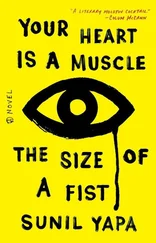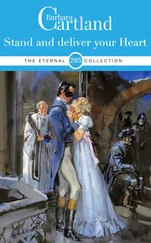Little did I know that it was a promise I would never keep.
Thankfully Paul recovered quite quickly. It was some sort of mild virus, the doctors thought, and would have no lasting effects. I planned to visit him once he was back at the nursery as soon as I could arrange time off work.
Then Mrs Cotter came to call. ‘Paul can’t go back to the Ernest Bailey Nursery, I’m afraid, Pauline,’ she told me. ‘They don’t keep children for more than two years and he’s already been there longer than anyone else. It would be in Paul’s best interests if he was placed in foster care now.’
‘But I never agreed to that!’ I cried.
‘This is what everybody thinks would be best for Paul. We’ve found a lovely couple in Wolverhampton who couldn’t have children of their own. They’re in their mid-forties. He’s a deputy headmaster and she’s a school nurse. What Paul needs now is the sort of one-to-one care only they can offer.’
‘How long?’ I asked.
‘Until his next review,’ she said. ‘In a year.’
My stomach lurched. A year was such a long time in a child’s life. He was already growing so fast. Would he even know me after all that time? ‘Will I be able to see him?’ I asked, afraid of the answer.
She hesitated. ‘That wouldn’t be advisable. He’d find it too unsettling, especially after his recent illness.’
Both Mrs Cotter and my mother were immovable. They had made the decision for me, it seemed. There was no viable alternative that I could offer Paul. In a year’s time, maybe there would be. John had already been so kind. He knew how I felt about keeping Paul and if things developed between us as I hoped they would, then it went unspoken that the boy would end up living with us one day.
OK then, I reasoned, trying desperately to put a brave face on a helpless situation, this buys me a little more time. After all, a lot can happen in a year…
THE NEXT TWELVE MONTHS WERE PIVOTAL, NOT LEAST BECAUSE JOHN AND I were growing increasingly fond of each other. Ours hadn’t been love at first sight as it had for my parents, but over time we came to care deeply for each other and it seemed more and more likely that we’d end up together.
John was still working on the ships, travelling back and forth to New York, mostly on the MV Britannic. He also went to Canada, the Middle East and South America on exotically named vessels like the Franconia, the Amazon, the Corinthia, the Mauretania and the Saxonia. He visited places I’d never even heard of like Auckland, Panama, Barcelona and Larnaca. Using a cine camera he’d bought in the United States he took footage of himself and his mates on the ships and on days off leaping among the giant stones of the Parthenon, on pleasure boats in Istanbul or walking European streets. More handsome than ever with his longer hair and fashionable sideburns, and wearing drainpipe jeans and winkle-picker shoes, he was quite the cosmopolitan man of the world. In New York, he became hooked on jazz and began to bring records back from around the world. I had already been switched on to jazz by my brother, so we now had something new in common. Whenever he returned from a trip, he’d rush home bearing gifts for everyone he knew and loved. He even brought an American washing machine back for his mother once, wheeling it all the way down Fifth Avenue to the ship, and having it rewired for her back in Britain.
Always so thoughtful, he’d arrange all sorts of surprises for me, not all of them entirely within the rules. He and his fellow stewards used to take turns to do ‘firewatch’ on the Britannic, which meant guarding the ship when she was in dock to make sure she came to no harm. A quick bribe to whomever was on duty meant that John could smuggle me on board to spend the evening with him in one of the ship’s finest state rooms. It was highly irregular but, my-oh-my; we had a high old time in those luxury cabins.
He surprised me another time by announcing that he was taking me to London for the weekend. We’d see all the sights, he said, and he’d booked us a nice double room at the Strand Palace Hotel. I’d never been to London before and was very excited. I wanted to see Piccadilly Circus and Trafalgar Square and Buckingham Palace where, who knows, I might even spot the Queen. When John told my mother what he was planning, though, she imposed one condition. ‘I want to see the hotel receipt,’ she said. ‘Two separate rooms, John. That’s how it will be.’ Poor John did as she’d asked which made the whole trip doubly expensive. Not that we ever used the second room. Exactly the same thing happened when he took me to the Isle of Man.
All seemed to be going well for us but not long after my nineteenth birthday I went down with a bad dose of the flu and was confined to bed. To my surprise, John turned up at my mother’s house to see me. I decided I must be delirious. Wasn’t he supposed to be in New York?
‘I’m not here by choice, Paul,’ he said. He’d always called me ‘Paul’, and I loved the endearment.
I dragged myself up on my pillows and stared at him.
‘I’ve been sacked.’
‘Why?’ I mumbled, my head full of cold.
He grimaced. ‘The air conditioning broke down and it was like a furnace below decks. I went to the captain to complain but he called me a troublemaker.’
I knew John had been pushing to get better trade union representation at sea and I knew that his political passions weren’t popular with his employers, but beyond that, I didn’t really understand. ‘Don’t worry, love,’ I said, relieved his unexpected return wasn’t because of anything more serious. ‘I’m sure you’ll find another passage soon. Anyway, I’ve still got my job.’
‘Um, well, that’s another thing,’ he told me, looking awkward. ‘While you’ve been here sick in bed, I’m afraid Quaintways has burned down. There was a fire overnight and the place was gutted.’
I couldn’t believe what I was hearing. The temptation to slide back down the bed and hide under the sheets was enormous. Fortunately, Mr Guifreda and the managing director decided to keep all of the staff on, transferring us instead to the Lewis’s salon in Liverpool for the six months that it would take to rebuild Quaintways. As soon as I was back on my feet I began commuting to Liverpool each morning with the rest of the staff, taking the eight o’clock train for the forty-five minute journey from Chester to Lime Street Station.
John, never a shirker, went back to the butcher’s where he was always welcome between voyages. He also did a paper round. Each morning at ten past eight, when he knew my train would be pulling out of Chester, he’d stop on his round and wait in an alleyway between the rows of terraced houses that backed on to the railway line. I, in turn, would sit in the window on that side and wait for a glimpse of the man I knew I’d almost certainly marry. As the rest of the girls giggled and teased, I’d sit on the edge of my seat until the moment I saw him and then we’d wave madly and blow kisses to each other in the few seconds before each disappeared from view. It was such a romantic thing for him to do and made me think of my parents waving to each other across the rooftops.
After work, I’d walk from the station to the street where John worked and sit in a little café opposite sipping coffee. Watching and waiting, I’d stare and stare at the butcher’s window until I saw John’s hands reach down into the display, pick up a string of sausages and swing it madly from side to side. That was my cue to ask for my bill and it made me laugh every time. He’d be ten more minutes wiping up and putting the meat away before he’d take off his stripy apron and we’d go back to my mother’s for tea.
Читать дальше












